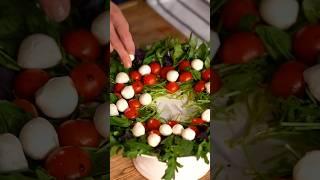
Woodworking with very few clamps (maybe only 5).
Комментарии:

Thank you, Always good to not try to sell something or to say you need this tools !!!
Ответить
So basicly its similar to how a mekugi( the small peg on a katana handle)work
Ответить
using battens is just a different type of clamp and a much worse solution since it ties up your table instead of tying up some clamps and it's very likely to introduce bowing. reinventing the wheel with worse solutions to seem edgy is sort of a waste of time. most of what you showed here is less efficient than simply using clamps.
Ответить
One thing that can replace clamps and is super cheap are concrete formwork nuts and tie rods.
Ответить
🙏❤️😊
Ответить
A large space just gives me a longer queue before I need to clean up my garbage.
Ответить
clamps i think are one of the things. pawn shops. thrift shops that have tools. garage sales, estate sales, and cheap clamps. pipe/bar clamps. C clamps from harbor freight. While you might need a lot of clamps, you rarely need a lot of "expensive" clamps
Ответить
I'm new at woodworking and I love the entertaining information you supply on your channel. Question... On the Draw Board M&T it seems the peg would not fill the hole on both sides since it's tapered. How do you make it look good on the opposite side?
Ответить
chatty very very very
Ответить
This is exactly why I love Japanese joinery so much. They almost never use any glue. They just use very efficient joinery methods.
Ответить
A panic attack is diffrent
Its usually a similar sensation to a stroke/heart attack or like theres an elephant on your chest. I had my first one when I was 17 or 18 and i thought it was an overdose or stroke and i was dying.

For cabinet clamps, I find the longer the clamp the lower the price per foot, or inch... So saving to buy the longer clamp is more cost effective.
Ответить
Maybe I missed something, but what was clamp #3? I saw (1) pipe clamp; (2) F clamp; (4) twin screw clamp; and (5) spring clamp.
Ответить
Twine and wedges
Ответить
Thanks!
Ответить
Thanks Rex
Ответить
So the end result of this video is that clamps are better than no clamps. And that you can get by without many of them. In Dominys time, the relative cost of clamps to wood was far different than now. Now clamps are cheap and wood is expensive. So no, gonna keep using lots of clamps. But the point is appreciated.
Ответить
Breath Master Jedi, breath.
Ответить
Have you ever used the Dubuque clamps made in Iowa? They are super light and seem to be very well built.
Ответить
Rex, as my students put it, "YTMND." . . . "You the man now, dawg." I really enjoy your videos. Thank you.
Ответить
One can diagonally join to long clamps for an even longer clamp
Ответить
You're right. Sometime all you need is a ground point and a wedge.
Ответить
You've never built a boat, have you Rex? If you had, you'd know the number of clamps needed is invariably two more than you have.... :)
Ответить
Good video but I have some commentary.
It's possible to make simple wedge clamps without screwing them to your bench top with lumber preferably drilled with multiple holes and a loop of rope with a twisting stick is possible, a Spanish windlass and so on, so there are some simple improvisations he doesn't show that aren't as involved as using threads you make or buy.
Another example is an F style clamp that uses a cam rather than threads.
This brings up that a cam can often be used in place of a wedge or opposing wedges or threads.
Many have used both for clamps with lumber, possibly drilled with holes for adjustment or in dog holes in their bench for big glue ups.
I feel he is too thread oriented in his dismissal of self made clamps and holding up a C clamp with threads made of wood doesn't represent what's been done or can be done very well. There is a lot out there on self made clamping and clamps that doesn't involve threads, bought or made.

I work with pro audio and reached the same conclusion for my studio. Few versatile high quality handpicketed tools that I know inside out. And inspiration from professionals from the past that did amazing work with fewer tools.
Ответить
Nice. Since you don’t use your clamps, can I have them? 🤪
Ответить
しゃべりうるさい。
Ответить
The Wedge. Worlds simplest tool :)
Ответить
Couldn’t agree more about the machines; i got machines; but think I can stand dust, dust extraction and all that crap? Nah… haha; some I feel are not necessary, like cutting panels, as our box store does this when you buy the panels; just give them the dimensions; however routing long slots; i’d rather rout electrically than chisel and plane; drills and driving I like my press and handheld; but I prefer hand sawing inside and mitre saw outside; cheers awesome content mate
Ответить
I've been selling clamps for years and, I assure you, nothing said in this video makes any sense, except where he shows how to use clamps.
Ответить
GV, shout out to Brother Steve
Ответить
so wedges and a frame is not a clamp? really?
Ответить
Luthiers: No
Ответить
First time I've seen one of your videos, I love how you explain and entertain us thank you very much. I will be looking all your videos up.
Ответить
Outstanding commentary! Semper Fi
Ответить
Too much time wasted getting into the meat and potatoes of the video.
Ответить
Great shows. ❤
Ответить
Hey sir
Can you give us some wood joining process without drilling machine and I heard that nail can also join wood

How many clamps you need depends on what you are working on. One job could require dozens of clamps, the next might only need two. And if you do not want to buy clamps, they are not hard to make, just look them up.
Ответить
So you are telling clamps are overrated!!!!.
New thing i learnt today ( i don't know anything about wood working, I'm interested in wood turning).
❤️ From India🇮🇳

Thanks for covering joining boards to make a panel. I have to make a tabletop and will be using those wedges.
Ответить
For people who are making multiple items of the same size that are square a for with a ratcheting closure would replace clamps. Shim around to tighten.
Also weighted items can be used to push things together.

Good vid
Ответить
We used those adjustable wooden twin screw clamps frequently in my father's shop when I was growing up. One trick we used to speed adjust them was to hold each of the handles one in each hand and spin them--sort of like peddling a bicycle. This would speed open or close the screw clamp's jaws quickly depending on which way you "peddled" the handles.
Another trick was to quickly get the jaws of those screw clamps relatively parallel. Adjusting those jaws could be tricky and most people seemed to use a board to set the jaws. But if you only have the material your clamping a quick way to get those jaws parallel so you can clamp the flat surface evenly is to use what usually would be seen as the back end of the clamp, away from the jaws. By adjusting the rear of the clamp to approximate the thickness you are clamping you will have a close approximation of parallel with the front jaws. If you want it even closer, then adjust the fronts to be where you need them and readjust the rears. That second lineup should have you super close to perfect for flat glue clamping.
Another non-clamp method of holding things together during gluing was simply rope or string wound around the pieces. This was usually used for unusual shapes that were difficult to clamp normally. If you need a seriously tight string clamping you can either double or triple wrap it. Another technique would be using a torniquet style by using a small piece of wood (sometimes as small is a pencil) to twist the string tigher.



![[#알쓸신잡2] 사도세자는 PTSD(외상후 스트레스 장애)였다? 영조와 사도세자의 이야기 [#알쓸신잡2] 사도세자는 PTSD(외상후 스트레스 장애)였다? 영조와 사도세자의 이야기](https://hdtube.cc/img/upload/MHV4QzZ5VGZ2em0.jpg)






















